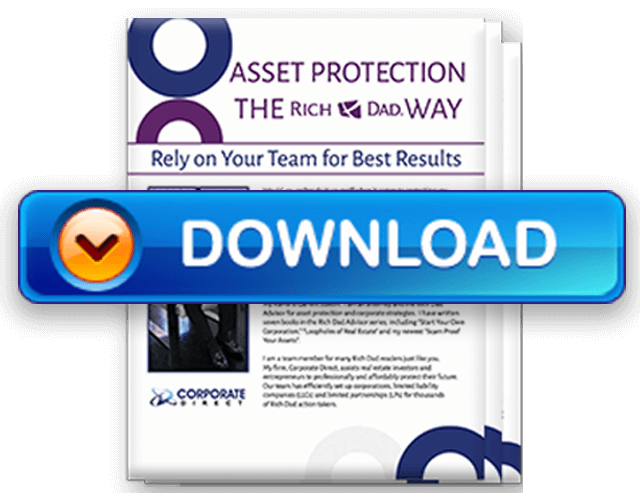Blog | Entrepreneurship
I’ve Set Up My Entity…Now What Do I Do?
April 24, 2019
How to Successfully Run Your Business in the First Year
After taking the correct and responsible step of setting up an entity to protect yourself, whether it is a corporation or LLC, the next plausible question is always:
“Now what do I do?”
That’s a great question! It is so important and asked so often that I have written a book to answer it. Run Your Own Corporation discusses the requirements and obligations you must deal with as you start to operate your entity.
A key point of the book addresses your responsibility to make your payroll tax payments. The IRS is very strict about this, which is why we cover the topic in a way that you clearly understand what is expected of you.
Failure to follow the rules can lead to civil and even criminal penalties. So, we want you to be prepared.
10 Steps for Payroll Compliance
To comply with the rules and regulations on payroll withholding and reporting, you will need to follow the ten steps here:
- File IRS Form SS-4 to get your federal Employer Identification Number (EIN).
- Open a bank account using your EIN and articles of incorporation
- Get each employee an IRS Form W-4, have them fill it out, and keep it on file
- Register your business with your state’s employment division office and make the required unemployment insurance payments.
- Implement a payroll plan for making payroll tax deposits on a regular basis.
- File the Employer’s Quarterly Federal Tax Return, Form 941, at the end of each quarter.
- At tax year-end, report your federal payroll tax payments
- At the end of each year, report each employee’s annual wages to the IRS and state on Form W-2
- File and report payment of $600 or more to each independent contractor on Form 1099-MISC
- Take a deep breath. It’s a lot of work but absolutely necessary and worth it.
Keep Good Books
IRS audits are also addressed in the book. The IRS has really increased their business audits. Run Your Own Corporation shares what the IRS is looking for and how to deal with them when being audited. (Hint: Be sure your CPA is at your side.)
Start Your Business the Right Way
Protect your personal and business assets before it‘s too late.
Get a FREE checklist of the best way to incorporate your business from Robert‘s go-to legal advisor, Garrett Sutton and Corporate Direct.

Download Your FREE Checklist Here
As I mentioned in a previous blog, "The Government is at my door, what do I do?", here are five tips for dealing with an audit.
- Know the Standard
- Hire the right lawyer
- Respond
- No Destruction
- Understand Subpoenas and Search Warrants
Don’t worry, when you read my book you will realize that it isn’t that complicated. Although the payroll tax rules are strictly enforced and IRS audits appear daunting, the book clearly explains what you need to do. Other businesses and investors have dealt with the same thing many times and turned out fine, better than fine sometimes, and so can you.
Similarly, the book stresses the importance of having a bookkeeper handle some of these filing requirements. Consider your situation. You are good at what you do. To grow your business you need to go out and do a lot more of that. Do you have the time to also do bookkeeping? Think of the opportunity cost involved: Doing the books yourself; which may drive some hard charging entrepreneurs nuts, versus having another capable person do them so you can spend more doing what you are best at—running your business.
Get a Mentor
Studies have shown that the smartest people are the ones who realize that they do not know it all. It may also beevolutionary. The cochsure caveman may have been the one more likely to walk off a cliff.
The best leaders know they don’t have all the answers. They are willing to learn from the experiences of others, which is why they seek out and use mentors. They are willing to use their team of experts for specialized advice and counsel. Let your team help, and they will help you avoid that cliff.
Run Your Own Corporation deals with these and the many other issues involved with properly running your entity from start to finish.
Original publish date:
April 24, 2019